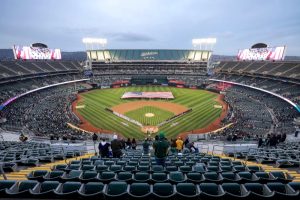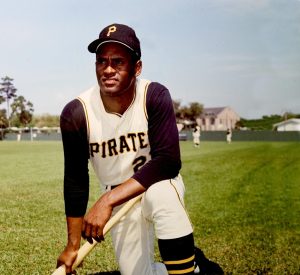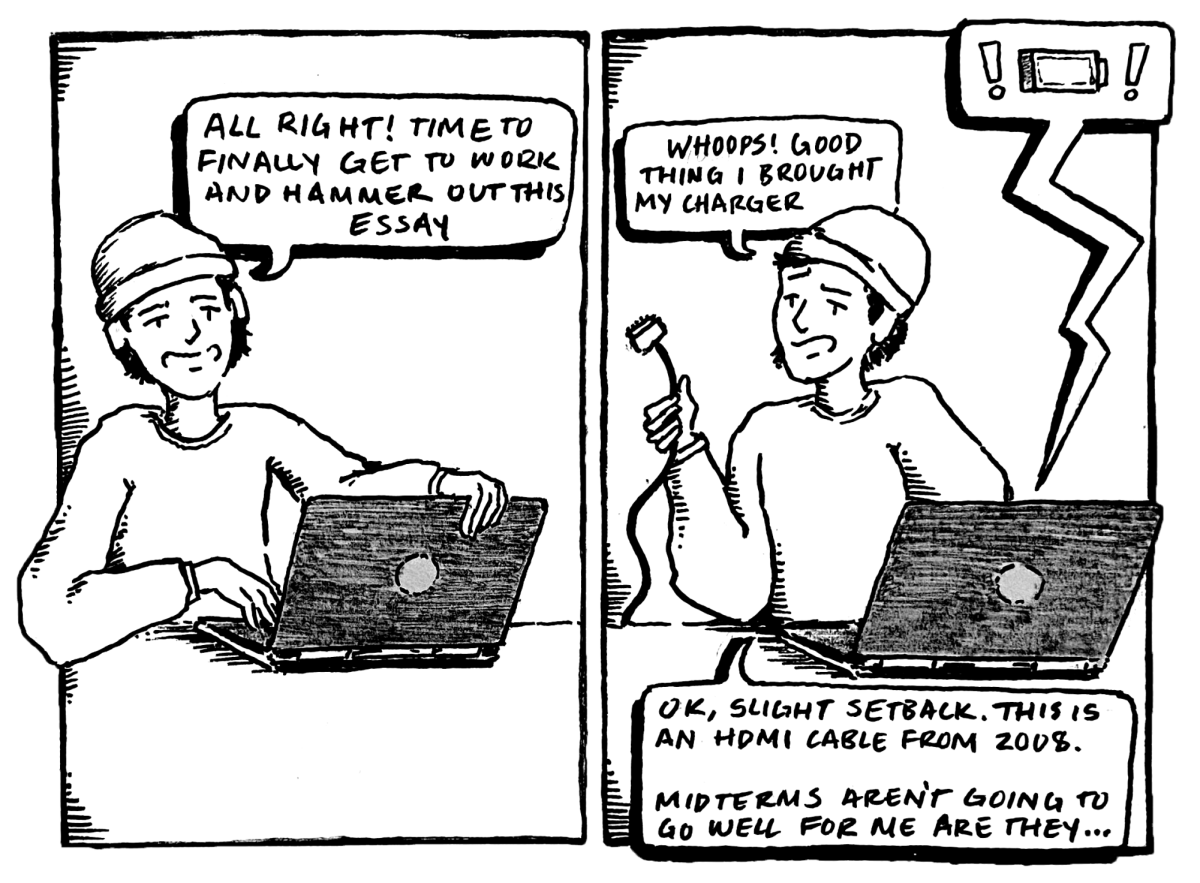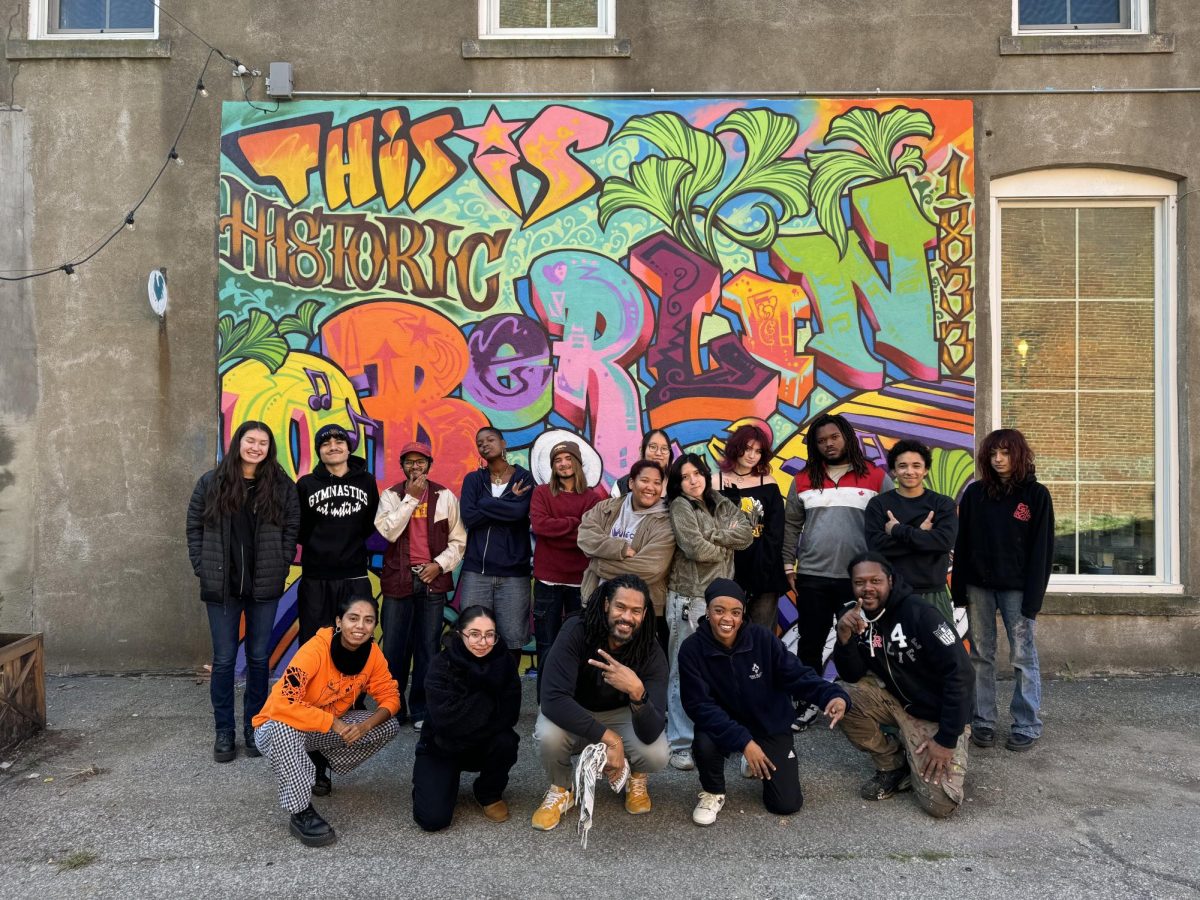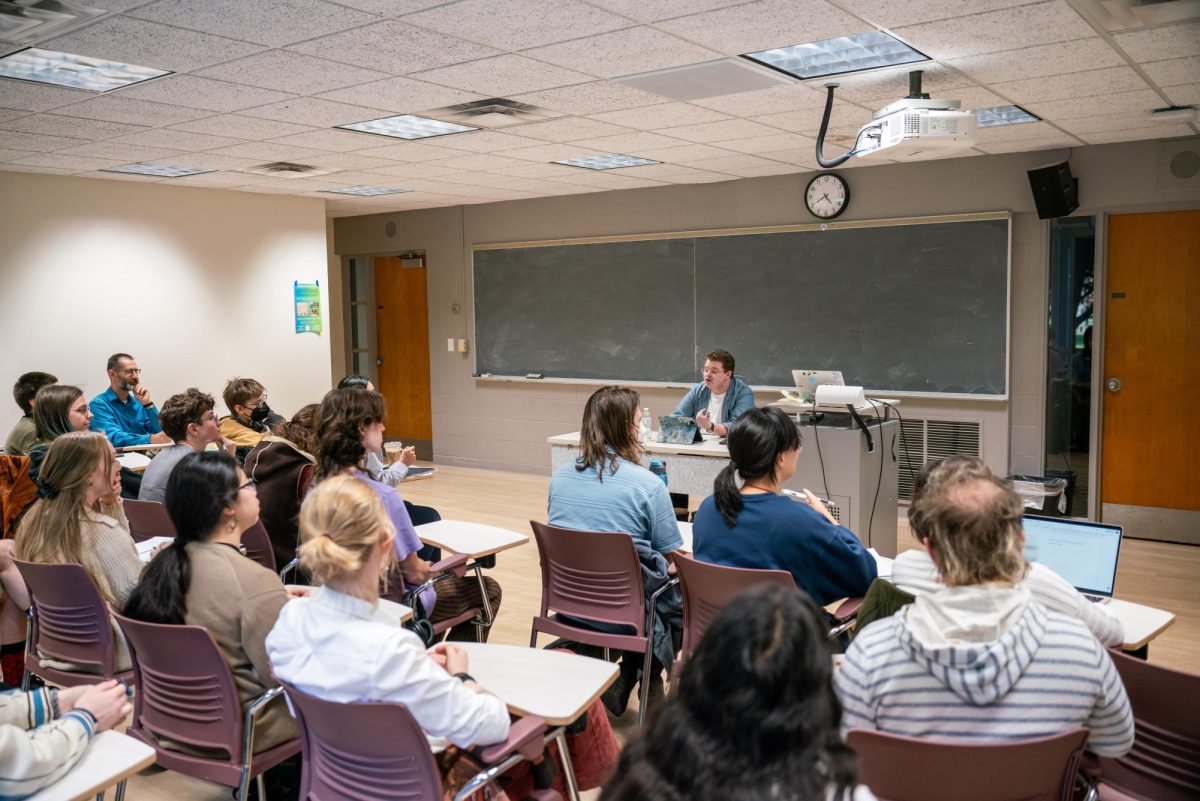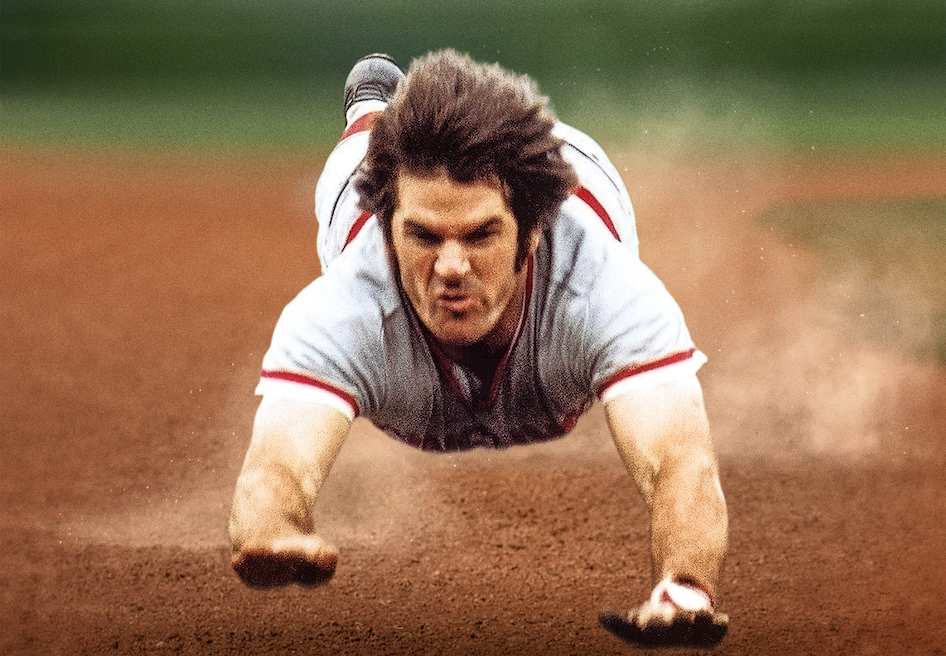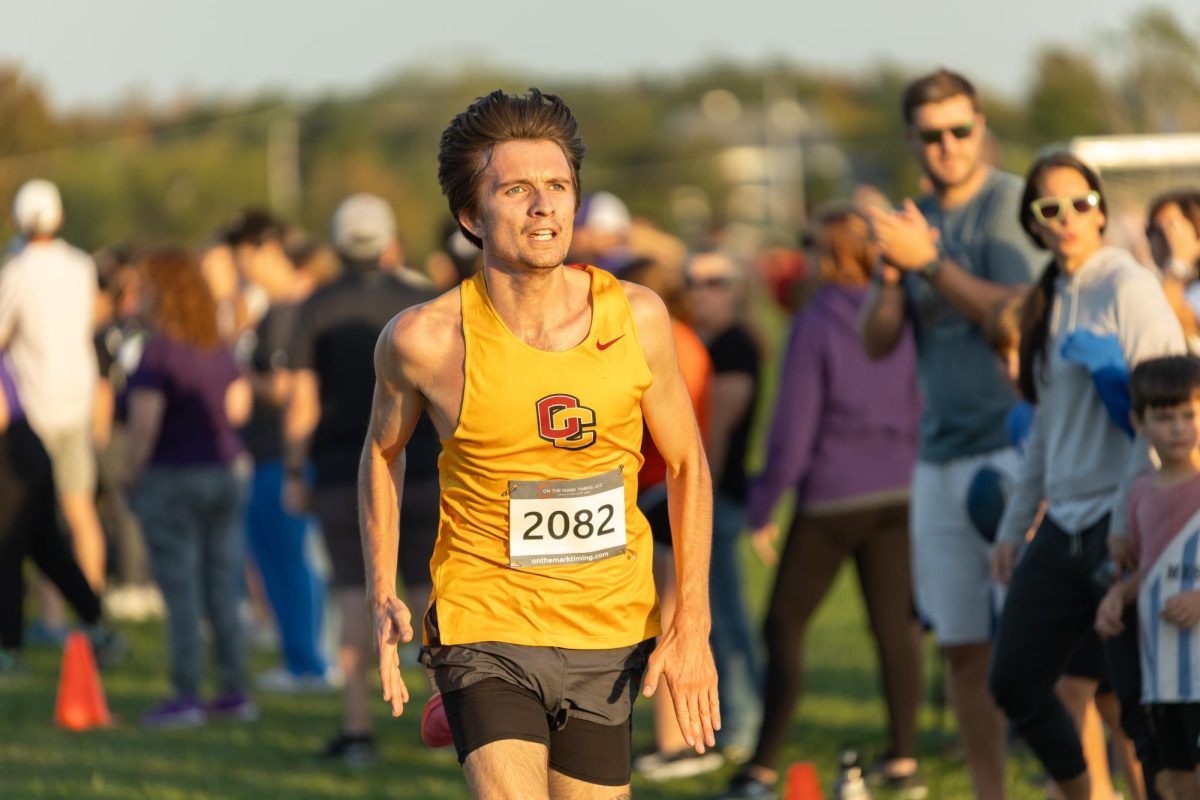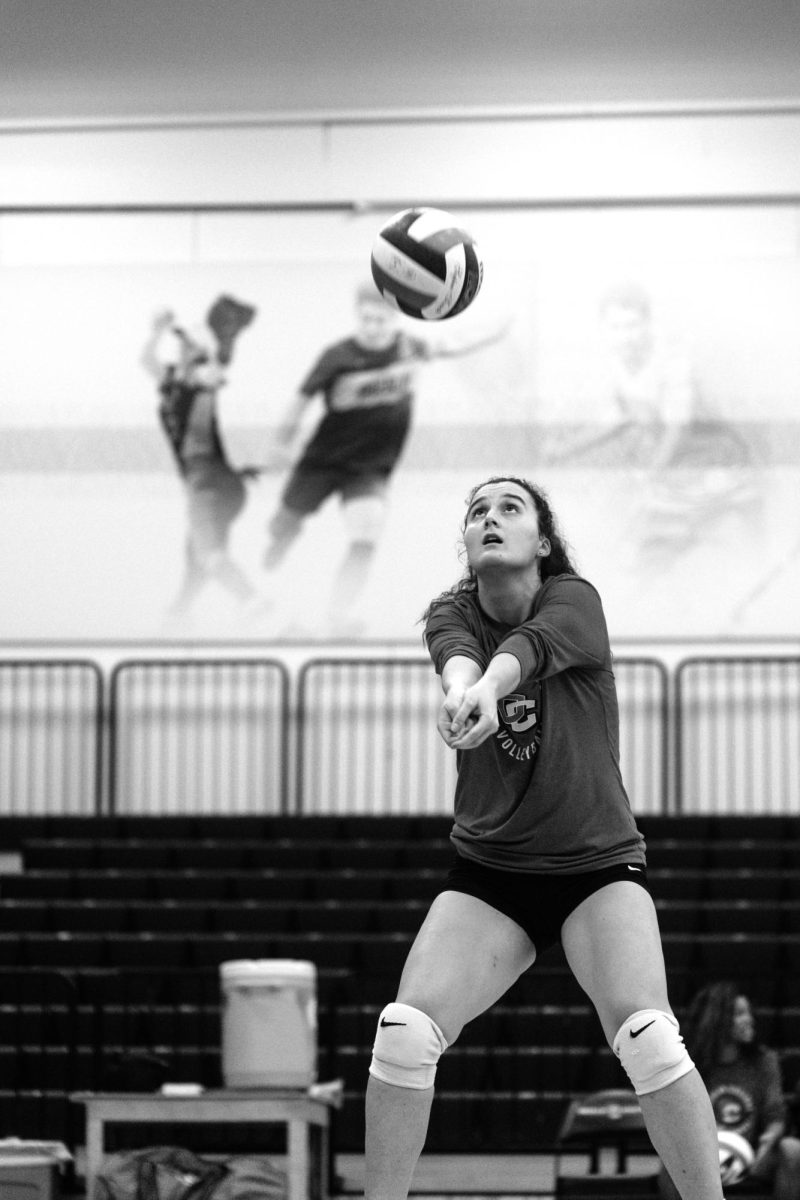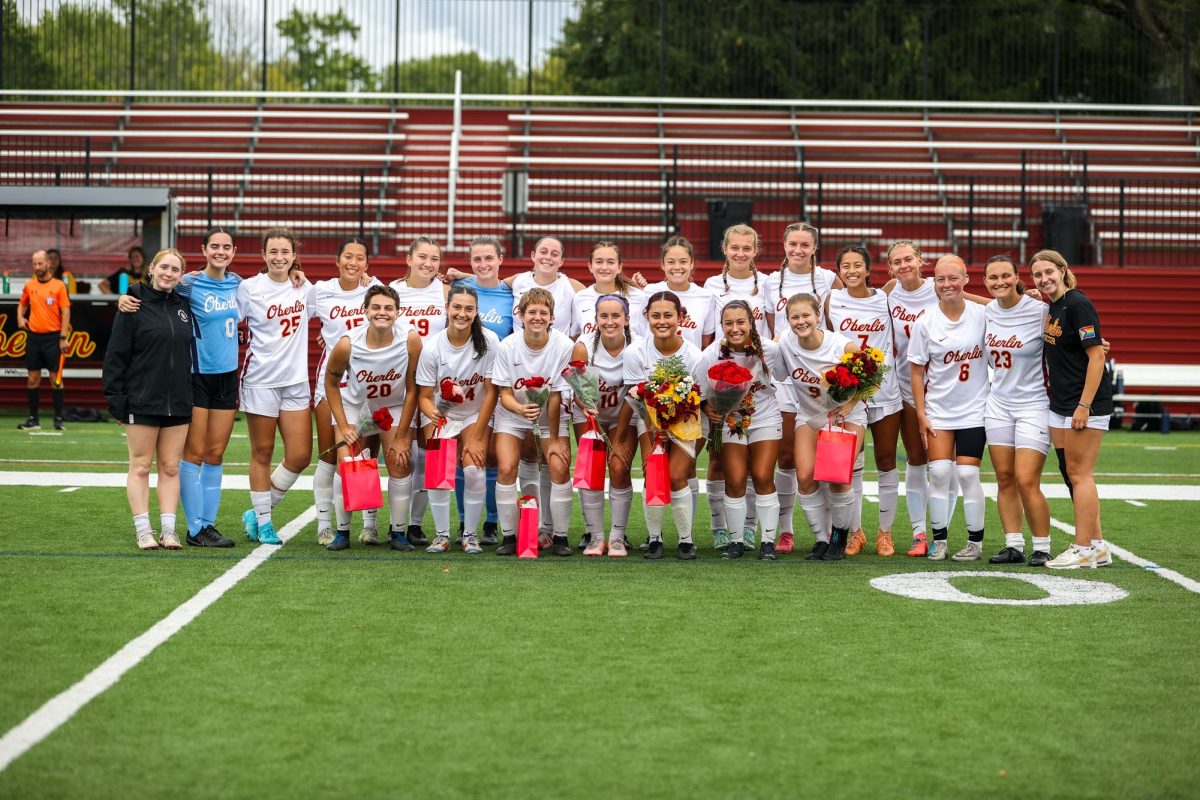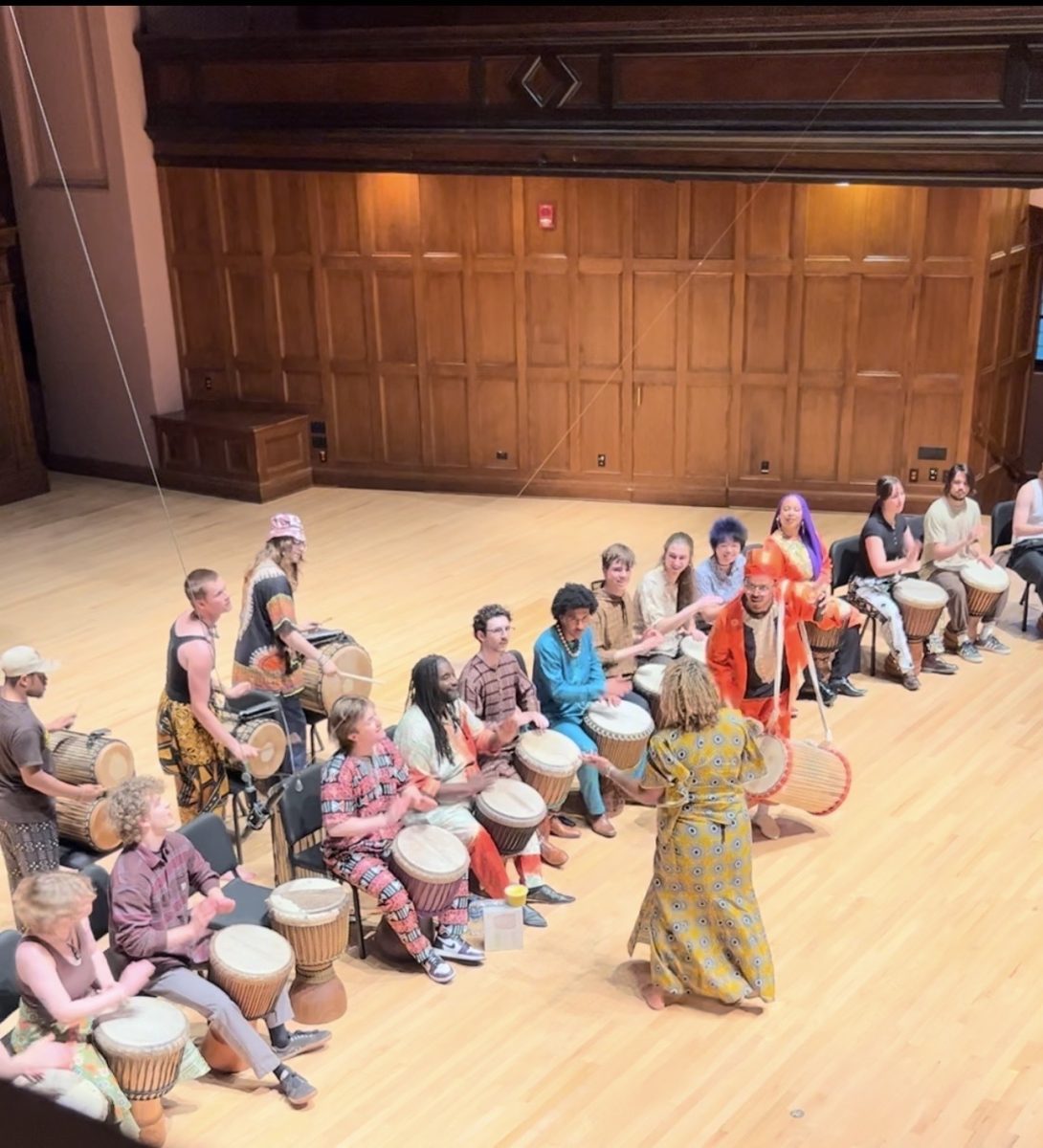Guest Artist Recital Brings Musical Landscape to Life
February 15, 2013
On Feb. 7 in Kulas Recital Hall, Associate Professor of Viola and Chamber Music Michael Strauss put on a remarkably constructed interdisciplinary concert of chamber music, inspired by selections of poetry. For his concert, titled “Poetic Music for Oboe, Viola and Piano,” Strauss was joined on the stage by guest artists Roger Roe, English horn and assistant principal oboe of the Indianapolis Symphony Orchestra, and R. Kent Cook, associate professor of piano at Illinois Wesleyan University. Professor of English T. S. McMillin recited corresponding poetry before each musical selection.
The dark and sorrowful tone of the concert was set by August Klughardt’s Song of the Reeds Opus 28.Inspired by Nikolaus Lenau’s poem of the same name, Klughardt beautifully captured the poem’s theme of lost love. The viola and oboe, trading off melodies, seem to embody estranged lovers on stage, each pleading to the audience over the guiding platform of the piano. The first movement was especially evocative of the poem, reflecting Lenau’s sleepy alliteration on the letter “s” through restful opening piano chords and slow, lamenting lines of oboe and viola melody played with utter commitment to the world of the piece, as if the performers lived within it. Joseph Holbrooke’s Nocturne ‘Fairyland’ Op. 57, No. 1clearly drew upon the mysteriousness of Edgar Allan Poe’s “Fairy-Land.” The poem spoke of “dim vales … [and] shadowy floods … whose forms we can’t discover,” and from that hazy atmosphere rose the nocturne. Unisons and octaves painted ambiguous shades of harmony and reflected the poem’s simple rhyme scheme.
Felix Harold White’s work The Nymph’s Complaint for the Death of her Fawn took its inspiration from Andrew Marvell’s poem of the same name. Navigated deftly by the performers, the piece’s contrasting musical gestures drew upon the poem’s complex mood — a combination of grief, anger and brooding. These emotions culminated in a state of dreamy mourning at the piece’s end, as the piano, with depressed pedal, rang out softly into the hall.
Sharp bow strokes in the viola punched open the first of Charles Martin Loeffler’s Two Rhapsodies for Oboe, Viola and Piano. The stormy mood was foreshadowed by the opening stanza of Maurice Rollinat’s “The Pond,” which depicted “a laden sky rumbling with muffled thunder” over the water. But unlike the other pairings of music and poetry on the program, Two Rhapsodies felt like the result of Rollinat’s poem. Rather than portraying the poem’s brewing storm, the piece began with lightning finally striking. A restless piano texture maintained the storm, but eventually the sky began to clear as the movement opened up into a lively, playful section.
It seemed that night had turned to day, shining light all the way to the bottom of the eponymous pond, now lucid. Though the poem doesn’t explicitly exhibit any of this brightness, its final two words — “darkened mirror” — suggest that the cheerful second section of Two Rhapsodies acts as an alter-ego to the menacing first. The movement came full circle with a return to the darker material from its opening, but it had been changed by the progression through the previous section, tinged with lightness.
The second rhapsody, inspired by Rollinat’s “The Pipes” — a grave remembrance of a piper now dead — plunged the mood of the concert back into sorrow. A watery, whispery piano cadenza evoked the poem’s “grieving wind,” but the movement soon returned into the pastoral, symbolizing a fond remembrance of the piper, the humming vibration of the viola strings imitating the buzzing quality of pipes. The piece grew quieter as it approached its end, the sun setting on the rural landscape, drawing a peaceful close to a mostly dark, perhaps draining, but beautiful and original concert.


